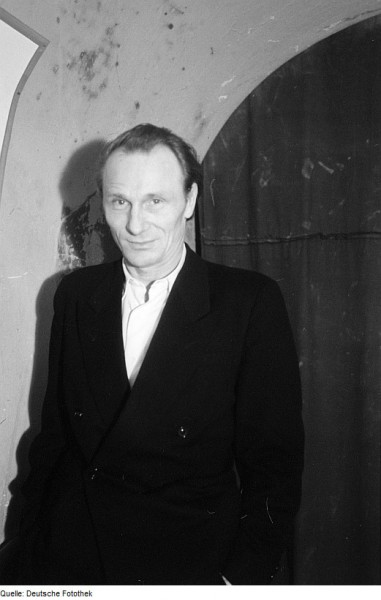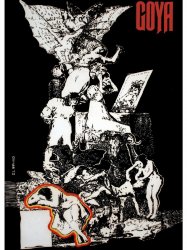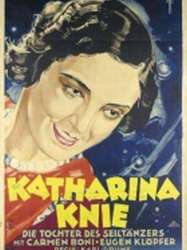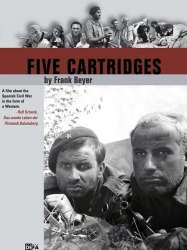Ernst Busch is a Actor and Songs Allemand born on 22 january 1900 at Kiel (German)

Friedrich Wilhelm Ernst Busch (January 22, 1900 – June 8, 1980) was a German singer and actor.
Busch first rose to prominence as an interpreter of political songs, particularly those of Kurt Tucholsky, in the Berlin Kabarett scene of the 1920s. He starred in the original 1928 production of Bertolt Brecht's Threepenny Opera, as well as the subsequent 1931 film by Georg Wilhelm Pabst. He also appeared in the movie, Kuhle Wampe.
A lifelong communist, Busch fled Nazi Germany in 1933 with the Gestapo on his heels, eventually settling in the Soviet Union. In 1937 he joined the International Brigades to fight against the Nationalists in Spain. His wartime songs were then recorded and broadcast by Radio Barcelona and Radio Madrid. After the Spanish Republic fell to General Franco, Busch migrated to Belgium where he was interned during the German occupation and later imprisoned in Camp Gurs, France and Berlin. Freed by the Red Army in 1945, he settled in East Berlin where he started his own record label and worked with Bertolt Brecht and Erwin Piscator at the "Berliner Ensemble". A beloved figure in the German Democratic Republic, he is best remembered for his performance in the title role of Brecht's Life of Galileo and his recordings of workers songs, including many written by Hanns Eisler. He also made a memorable recording of Peat Bog Soldiers.
Il suit un cours de chant et d’art dramatique et travaille ensuite pour différents théâtres. En 1927, il s’installe à Berlin dans la Colonie des Artistes (Künstlercolonie) et joue dans des pièces de Friedrich Wolf, Bertolt Brecht et Ernst Toller. À partir de 1929, il travaille pour le cinéma, avec, notamment, un rôle assez important dans L’Opéra de quat’sous de Georg Wilhelm Pabst (1931) et le rôle principal du film de Slatan Dudow, Kuhle Wampe (Ventres glacés).
Après la prise du pouvoir par les nazis, Ernst Busch est recherché par les S.A., mais réussit à leur échapper. Il quitte l’Allemagne avec sa femme Eva, d’abord pour la Hollande. Par la suite, il séjourne en Belgique, en Suisse, à Paris, à Vienne et finalement en Union Soviétique, où, en 1935, il collabore au film Kämpfer de Gustav von Wangenheim. En 1937, il part en Espagne rejoindre les Brigades internationales. Il combat le fascisme par ses chansons, devant les membres des Brigades ou à Radio Madrid. Après la dissolution des Brigades, il retourne en Belgique en 1938.
Il est arrêté à Anvers en 1940 et déporté en France, où il est interné jusqu’en 1943, notamment au camp de Gurs. Il réussit à s’évader mais est de nouveau arrêté et livré à la Gestapo. Transféré à la prison de Berlin-Moabit, il est accusé de "préparation à la haute trahison". Il encourt la peine de mort, mais grâce à une intervention de Gustaf Gründgens, il n’est condamné qu’à 4 ans de réclusion.
À la fin de la guerre, il est libéré par l’Armée Rouge du pénitencier de Brandenburg. Il récupère son logement à la Colonie des Artistes. Il adhère de nouveau au Parti Communiste (K.P.D./S.E.D.). Il travaille pour le Berliner Ensemble, le Deutsches Theater et la Volksbühne, jouant dans des pièces de Brecht, ainsi que de Shakespeare (Iago dans Othello) ou de Goethe (Mephisto dans Faust). En même temps, il interprète des chansons de Hanns Eisler et des chants de travailleurs.
En 1961, il se retire de la scène, officiellement pour raisons de santé ; en fait, ses relations avec le régime sont tendues, en raison des reproches de manque de démocratie qu’Ernst Busch fait aux dirigeants de la R.D.A.
De 1963 à 1975, il enregistre 200 de ses chansons pour la société de disque Aurora.
Source : Wikidata
Ernst Busch

Birth name Friedrich Wilhelm Ernst Busch
Nationality German
Birth 22 january 1900 at Kiel (German)
Death 8 june 1980 (at 80 years) at Bernburg (German)
Awards National Prize of East Germany, Lenin Peace Prize, Patriotic Order of Merit, Order of Friendship of Peoples, Kunstpreis des FDGB
Nationality German
Birth 22 january 1900 at Kiel (German)
Death 8 june 1980 (at 80 years) at Bernburg (German)
Awards National Prize of East Germany, Lenin Peace Prize, Patriotic Order of Merit, Order of Friendship of Peoples, Kunstpreis des FDGB
Busch first rose to prominence as an interpreter of political songs, particularly those of Kurt Tucholsky, in the Berlin Kabarett scene of the 1920s. He starred in the original 1928 production of Bertolt Brecht's Threepenny Opera, as well as the subsequent 1931 film by Georg Wilhelm Pabst. He also appeared in the movie, Kuhle Wampe.
A lifelong communist, Busch fled Nazi Germany in 1933 with the Gestapo on his heels, eventually settling in the Soviet Union. In 1937 he joined the International Brigades to fight against the Nationalists in Spain. His wartime songs were then recorded and broadcast by Radio Barcelona and Radio Madrid. After the Spanish Republic fell to General Franco, Busch migrated to Belgium where he was interned during the German occupation and later imprisoned in Camp Gurs, France and Berlin. Freed by the Red Army in 1945, he settled in East Berlin where he started his own record label and worked with Bertolt Brecht and Erwin Piscator at the "Berliner Ensemble". A beloved figure in the German Democratic Republic, he is best remembered for his performance in the title role of Brecht's Life of Galileo and his recordings of workers songs, including many written by Hanns Eisler. He also made a memorable recording of Peat Bog Soldiers.
Biography
De 1915 à 1920, Ernst Busch reçoit une formation de mécanicien ajusteur (Maschinenbauschlosser). En novembre 1918, il participe au soulèvement des matelots de Kiel et devient membre du Parti Communiste (K.P.D.) en 1920.Il suit un cours de chant et d’art dramatique et travaille ensuite pour différents théâtres. En 1927, il s’installe à Berlin dans la Colonie des Artistes (Künstlercolonie) et joue dans des pièces de Friedrich Wolf, Bertolt Brecht et Ernst Toller. À partir de 1929, il travaille pour le cinéma, avec, notamment, un rôle assez important dans L’Opéra de quat’sous de Georg Wilhelm Pabst (1931) et le rôle principal du film de Slatan Dudow, Kuhle Wampe (Ventres glacés).
Après la prise du pouvoir par les nazis, Ernst Busch est recherché par les S.A., mais réussit à leur échapper. Il quitte l’Allemagne avec sa femme Eva, d’abord pour la Hollande. Par la suite, il séjourne en Belgique, en Suisse, à Paris, à Vienne et finalement en Union Soviétique, où, en 1935, il collabore au film Kämpfer de Gustav von Wangenheim. En 1937, il part en Espagne rejoindre les Brigades internationales. Il combat le fascisme par ses chansons, devant les membres des Brigades ou à Radio Madrid. Après la dissolution des Brigades, il retourne en Belgique en 1938.
Il est arrêté à Anvers en 1940 et déporté en France, où il est interné jusqu’en 1943, notamment au camp de Gurs. Il réussit à s’évader mais est de nouveau arrêté et livré à la Gestapo. Transféré à la prison de Berlin-Moabit, il est accusé de "préparation à la haute trahison". Il encourt la peine de mort, mais grâce à une intervention de Gustaf Gründgens, il n’est condamné qu’à 4 ans de réclusion.
À la fin de la guerre, il est libéré par l’Armée Rouge du pénitencier de Brandenburg. Il récupère son logement à la Colonie des Artistes. Il adhère de nouveau au Parti Communiste (K.P.D./S.E.D.). Il travaille pour le Berliner Ensemble, le Deutsches Theater et la Volksbühne, jouant dans des pièces de Brecht, ainsi que de Shakespeare (Iago dans Othello) ou de Goethe (Mephisto dans Faust). En même temps, il interprète des chansons de Hanns Eisler et des chants de travailleurs.
En 1961, il se retire de la scène, officiellement pour raisons de santé ; en fait, ses relations avec le régime sont tendues, en raison des reproches de manque de démocratie qu’Ernst Busch fait aux dirigeants de la R.D.A.
De 1963 à 1975, il enregistre 200 de ses chansons pour la société de disque Aurora.
Usually with
Filmography of Ernst Busch (11 films)
Actor
 , 2h16
, 2h16Directed by Konrad Wolf
Genres Drama, Historical
Themes Political films, Napoleonic Wars films, French Revolution films
Actors Donatas Banionis, Ernst Busch, Olivera Katarina, Fred Düren, Tatyana Lolova, Wolfgang Kieling
Roles Jovellanos
Rating70%





Elevé au rang de peintre fétiche de la cour du roi Charles IV d'Espagne, Francisco de Goya jouit d'une excellente réputation. S'il a foi dans l'Eglise et la royauté, Goya est aussi un patriote d'origine modeste, attaché au peuple. Homme de contradictions, il nourrit une passion dévorante pour la duchesse Alba, tout en désapprouvant sa morgue aristocratique. Goya traduit ces états d'âme dans des oeuvres singulières, qui paraîtront plus tard d'une grande modernité. A mesure qu'avance son «apprentissage» politique, ses toiles perdent leurs couleurs chatoyantes pour aborder un univers plus sombre et plus radical, jusqu'à s'attirer les foudres du Grand Inquisiteur...

Directed by Slátan Dudow
Genres Drama
Themes Political films
Actors Ernst Busch, Hertha Thiele, Adolf Fischer, Gerhard Bienert, Anna Müller-Lincke, Erwin Geschonneck
Roles Fritz
Rating65%





Kuhle Wampe takes place in early-1930s Berlin. The film begins with a montage of newspaper headlines describing steadily-rising unemployment figures. This is followed by scenes of a young man looking for work in the city and the family discussing the unpaid back rent. The young man, brother of the protagonist Anni, removes his wristwatch and throws himself from a window out of despair. Shortly thereafter his family is evicted from their apartment. Now homeless, the family moves into a garden colony of sorts with the name “Kuhle Wampe.”

Raid in St. Pauli (1932)
, 1h14Genres Drama, Crime
Actors Gina Falckenberg, Friedrich Gnaß, Wolfgang Zilzer, Ernst Busch
Roles Sänger
Rating69%





A social drama plays out in the harbor area of Hamburg: Ballhaus-Else, a prostitute, lives together with her boyfriend Leo, a peaceful bar musician, in St. Pauli. One day, Matrosen-Karl, a thief on the run, finds a hideout at Else's. She is fascinated by the man, who promises her a more exciting and better life. Together they want to leave Hamburg. Leo – who feels inferior to Karl – lets them go with a heavy heart. But then Karl gets arrested after a fight between the underworld and the police in the Kongo-Bar, and Else returns to Leo – and her hopeless everyday life.

Comradeship (1931)
, 1h33Directed by Georg Wilhelm Pabst
Origin German
Genres Drama, Action
Themes Films about the labor movement
Actors Ernst Busch, Alexander Granach, Fritz Kampers, Héléna Manson, Gustav Püttjer, Elisabeth Wendt
Roles Wittkopp
Rating74%





Two boys, one French and the other German, are playing marbles near the border between the two countries. When the game is over, both boys claim to have won, and complain that the other is trying to steal their marbles. Their fathers, border guards, come and separate the boys.

Hell on Earth (1931)
, 1h33Directed by Victor Trivas
Genres War
Themes Films about religion, Political films, Films about Jews and Judaism
Actors Ernst Busch, Vladimir Nikolayevich Sokoloff, Georges Péclet
Roles Ernst Kohler
Rating65%





The film centres around a dugout, formed from a basement, in no man's land between the trenches and front lines during the First World War.

The 3 Penny Opera (1931)
, 1h44Directed by Georg Wilhelm Pabst
Origin German
Genres Drama, Comedy, Musical, Crime, Romance
Themes Films about music and musicians, Théâtre, Musical films, Films based on plays, Films based on musicals
Actors Rudolf Forster, Carola Neher, Lotte Lenya, Fritz Rasp, Gustav Püttjer, Hermann Thimig
Roles The Street Singer
Rating71%





Macheath aka "Mack the Knife" ("Mackie Messer" in German) is presented as an antihero and is in league with Tiger Brown, Chief of Police, who is about to oversee the coronation of an unspecified queen.

The Song of Life (1931)
Directed by Alexis Granowsky
Genres Drama
Actors Elsa Wagner, Aribert Mog, Ernst Busch
Roles Sänger
Rating67%





After discovering that her elderly fiance has false teeth, a young bride-to-be becomes so distraught that she contemplates suicide. She is rescued by a young sailor, with whom she has a baby, which she eventually delivers by Caesarian section.
 , 1h20
, 1h20Directed by Alexis Granowsky
Genres Drama
Actors Alfred Abel, Peter Lorre, Hedy Lamarr, Ludwig Stössel, Margo Lion, Hertha von Walther
Rating67%





When thirteen large suitcases arrive at a hotel in a small town, labeled as belonging to a mysterious O.F., they provoke curiosity and speculation. Rumours begin to spread like wildfire that they belong to a millionaire. Although O.F. fails to appear, his anticipated arrival is a catalyst for a series of dramatic changes in the town.

Popular Tune (1931)
, 1h37Directed by Lupu Pick
Origin German
Genres Drama, Musical, Crime
Themes Films about music and musicians, Musical films
Actors Ernst Busch, Hans Deppe, Wolfgang Staudte, Margarete Schön, Willi Schaeffers, Werner Pledath
Roles Peter
Rating61%





À Berlin au début du XX siècle, les cinq membres d'un groupe de chanteurs vivent dans l'indigence dans un immeuble délabré. Quand l'administrateur de l'immeuble est retrouvé assassiné, Peter et Paul, deux membres, sont soupçonnés du meurtre. Au retour d'un concert, la police les attend pour les arrêter et les interroger. Comme Paul est plus impliqué dans l'enquête, il est immédiatement arrêté. Peter sait l'innocence de Paul et ne peut pas permettre l'arrestation, aussi parce qu'il sait combien Marie, une connaissance mutuelle, a Paul dans son cœur.

Katharina Knie (1929)
Origin German
Genres Drama
Themes Circus films, Théâtre, Films based on plays
Actors Eugen Gottlob Klöpfer, Carmen Boni, Fritz Kampers, Vladimir Nikolayevich Sokoloff, Viktor de Kowa, Peter Voß
Sound

Five Cartridges (1960)
, 1h24Directed by Frank Beyer
Genres Drama, War, Historical
Themes Political films
Actors Erwin Geschonneck, Ulrich Thein, Armin Mueller-Stahl, Fritz Diez, Manfred Krug, Hans Finohr
Roles Songs
Rating66%





During the Spanish Civil War, a battalion of the International Brigades is cut off without water or ammunition. The commander, Major Bolaños, requests his commissar, the German Heinrich Witting, to select five volunteers who will remain in the trenches and hold off the enemy, while the battalion retreats across the Ebro River. Witting chooses the Frenchman Pierre, the German Willi, the Pole Oleg, the Spaniard José and the Bulgarian Dimitri. In addition, the Soviet radio operator Vasia stays behind to handle communications.
 Connection
Connection

